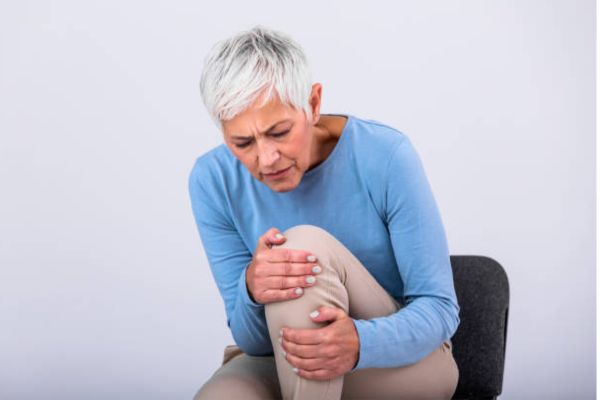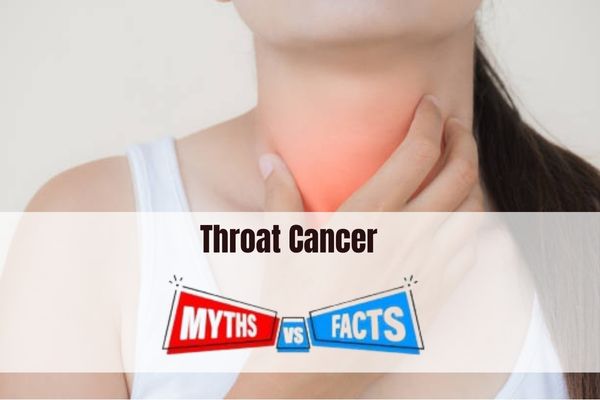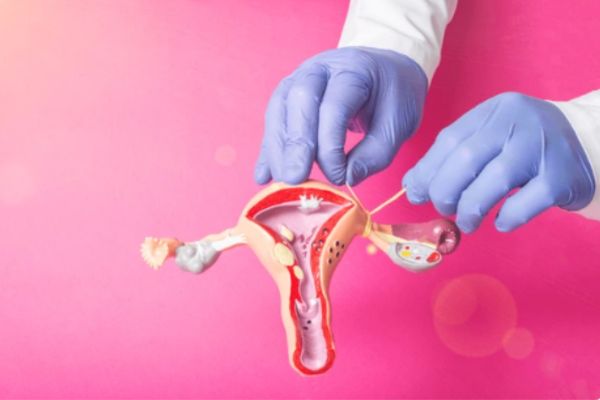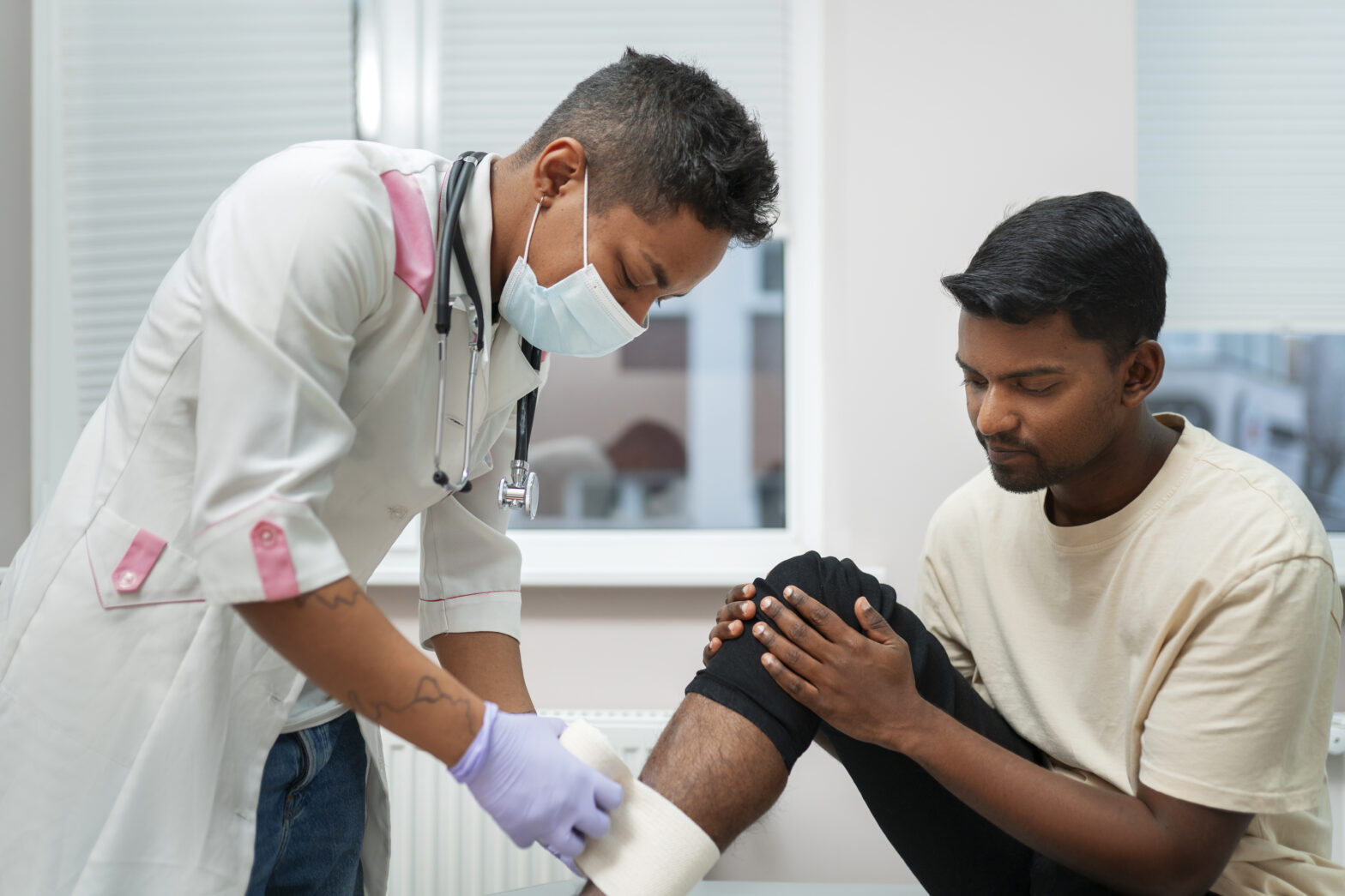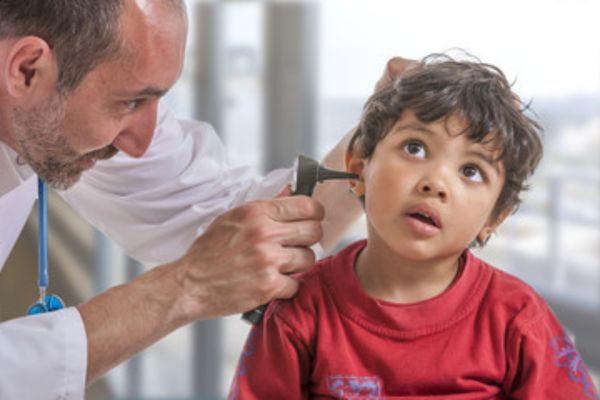Arthritis is a term often used to describe joint pain or joint disease, encompassing over 100 different types of conditions that affect the joints, tissues surrounding the joint, and other connective tissues. This condition is a leading cause of disability worldwide, impacting millions of people. Understanding the causes, types, and available orthopedic treatments for arthritis can help in managing symptoms and improving the quality of life.
Causes of Arthritis
Arthritis can develop for various reasons, and its onset can be influenced by several factors, including:
- Genetics: A family history of arthritis can increase the risk of developing certain types of the condition, such as rheumatoid arthritis or osteoarthritis.
- Age: As people age, their risk of developing most types of arthritis increases. This is particularly true for osteoarthritis, which is more common in older adults due to the natural wear and tear of joints over time.
- Injury: Previous joint injuries can lead to arthritis in the affected joint later in life. This is often referred to as post-traumatic arthritis.
- Infection: Certain infections can cause inflammation in the joints, leading to a type of arthritis known as infectious arthritis.
- Immune System Dysfunction: In autoimmune forms of arthritis, such as rheumatoid arthritis, the immune system mistakenly attacks healthy joint tissues, causing inflammation and joint damage.
Types of Arthritis
Several types of arthritis affect individuals differently. The most common include:
- Osteoarthritis (OA): Known as the “wear-and-tear” arthritis, osteoarthritis occurs when the cartilage that cushions the ends of bones in the joints deteriorates over time. It commonly affects the knees, hips, and hands.
- Rheumatoid Arthritis (RA): This is an autoimmune disorder where the immune system attacks the lining of the joints, causing painful swelling and, eventually, joint deformity. RA typically affects the hands, wrists, and knees.
- Psoriatic Arthritis: This type of arthritis occurs in some people who have psoriasis, a condition characterized by red patches of skin topped with silvery scales. It causes joint pain, stiffness, and swelling.
- Gout: Gout is a form of arthritis that occurs when urate crystals accumulate in the joint, causing inflammation and intense pain. It often affects the joint at the base of the big toe.
- Ankylosing Spondylitis: This is a type of arthritis that primarily affects the spine, although other joints can be involved. It causes severe inflammation of the spinal joints, leading to chronic pain and stiffness.
Orthopedic Treatments for Arthritis
While there is no cure for arthritis, various treatments can help manage symptoms and improve joint function. Orthopedic treatments play a crucial role in this management, particularly when other treatments are not effective.
Non-Surgical Treatments
- Medications:
- Pain Relievers: Over-the-counter medications like acetaminophen and nonsteroidal anti-inflammatory drugs (NSAIDs) can reduce pain and inflammation.
- Disease-Modifying Antirheumatic Drugs (DMARDs): Used in rheumatoid arthritis to slow disease progression and preserve joint function.
- Biologics: A newer class of DMARDs that target specific parts of the immune system.
- Physical Therapy: Tailored exercises can strengthen the muscles around the joint, improve range of motion, and reduce pain. Physical therapy is particularly beneficial for osteoarthritis and rheumatoid arthritis patients.
- Lifestyle Changes:
- Weight Management: Reducing weight can alleviate stress on weight-bearing joints, particularly in osteoarthritis.
- Dietary Adjustments: Foods rich in omega-3 fatty acids, such as fish and walnuts, can help reduce inflammation. Avoiding foods high in purines can help manage gout.
- Assistive Devices: Using canes, walkers, or braces can reduce stress on the joints and improve mobility.
Surgical Treatments
- Arthroscopy: This minimally invasive surgery allows the surgeon to diagnose and treat joint problems using small instruments and a camera. It can help with cleaning out joint debris and repairing minor joint damage.
- Joint Replacement Surgery (Arthroplasty): In severe cases of arthritis, particularly osteoarthritis, joint replacement surgery may be necessary. This involves replacing the damaged joint with an artificial one, commonly performed on knees and hips.
- Osteotomy: This procedure involves cutting and reshaping bones to relieve pressure on the joint. It’s often used for younger patients with knee arthritis.
- Joint Fusion (Arthrodesis): This surgery is used to fuse two or more bones together, eliminating the joint altogether. It’s typically used for smaller joints such as those in the wrist or ankle.
Best Orthopedic Hospital in Howrah: Nabanir Hospital
When it comes to orthopedic care in Howrah, Nabanir Hospital stands out as the best choice for comprehensive and advanced treatment. Known for its exceptional medical expertise and state-of-the-art facilities, Nabanir Hospital has become a trusted name in orthopedic healthcare.
Why Choose Nabanir Hospital for Orthopedic Care?
- Expert Orthopedic Specialists: Nabanir Hospital is home to some of the finest orthopedic surgeons and specialists in Howrah. With years of experience and extensive training, they are equipped to handle a wide range of orthopedic conditions, from fractures and sports injuries to complex joint replacements and spine surgeries.
- Advanced Surgical Techniques: The hospital utilizes the latest surgical techniques and technology, including minimally invasive procedures and AI-based knee replacement surgeries, ensuring quicker recovery and reduced post-operative pain for patients.
- Comprehensive Care: Nabanir Hospital offers a holistic approach to orthopedic care, including pre-surgical consultations, personalized treatment plans, and post-operative rehabilitation programs. This ensures that every patient receives the best possible care throughout their recovery journey.
- Modern Facilities: The hospital is equipped with cutting-edge medical equipment and a dedicated orthopedic unit, providing a comfortable and safe environment for patients undergoing surgery or treatment.
- Patient-Centric Approach: At Nabanir Hospital, patient satisfaction is a top priority. The dedicated medical team and support staff are committed to providing compassionate care and personalized attention to meet each patient’s unique needs.
Services Offered at Nabanir Hospital
- Joint Replacement Surgery: Specializing in knee, hip, and shoulder replacements using advanced surgical techniques.
- Spine Surgery: Comprehensive care for spinal disorders, including minimally invasive procedures.
- Sports Injury Management: Expert care for athletes and sports enthusiasts, with specialized treatments for ligament injuries, fractures, and tendon repairs.
- Fracture and Trauma Care: Emergency services for all types of bone fractures and trauma-related injuries.
- Pediatric Orthopedics: Dedicated care for children with orthopedic conditions such as scoliosis, congenital deformities, and growth abnormalities.
Book Your Appointment Today!
If you are looking for the best orthopedic hospital in Howrah, look no further than Nabanir Hospital. With top-notch medical expertise, advanced treatment options, and patient-focused care, we are here to help you regain your mobility and live pain-free.
Contact Nabanir Hospital today to schedule a consultation with our expert orthopedic team and take the first step towards a healthier, more active life.

